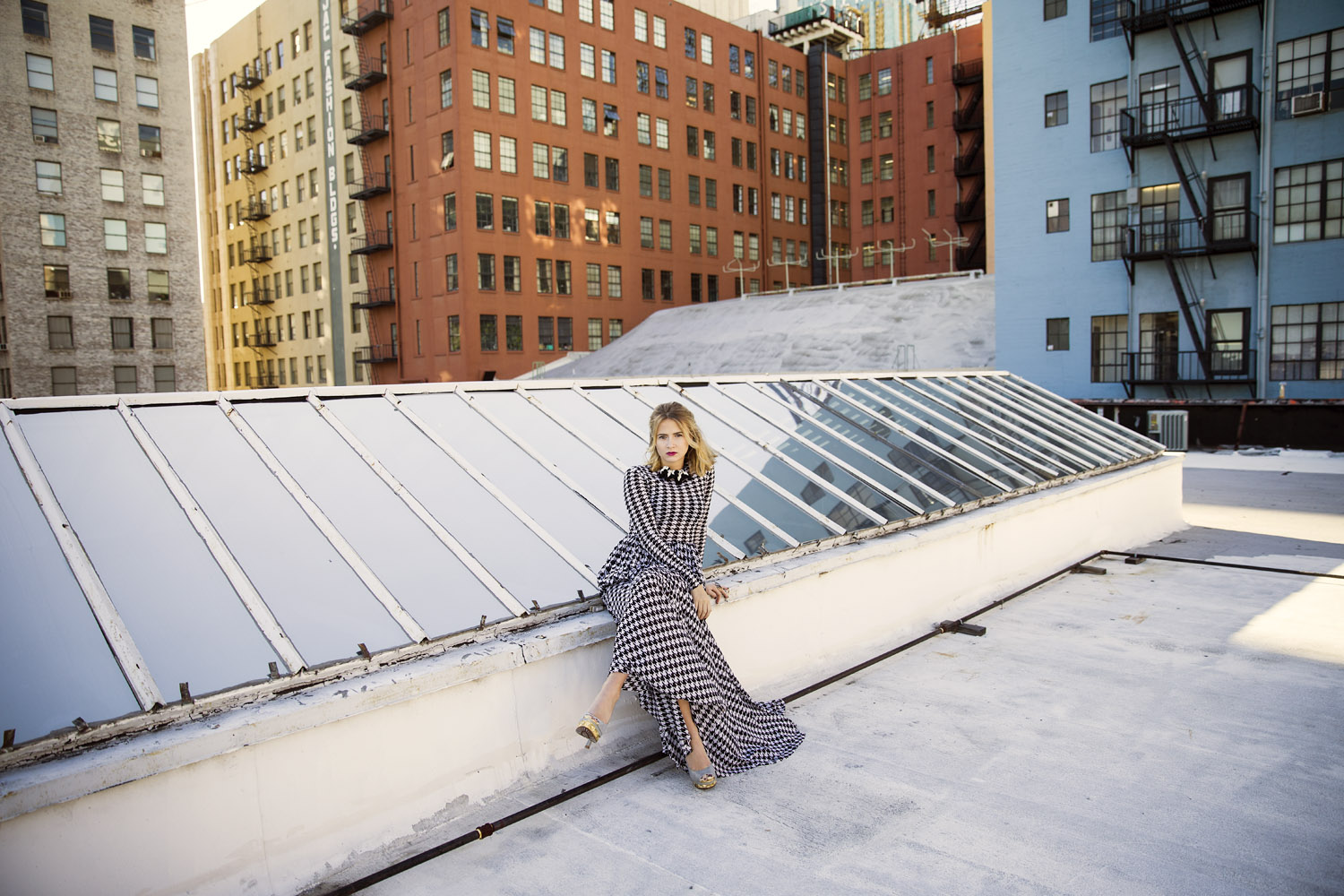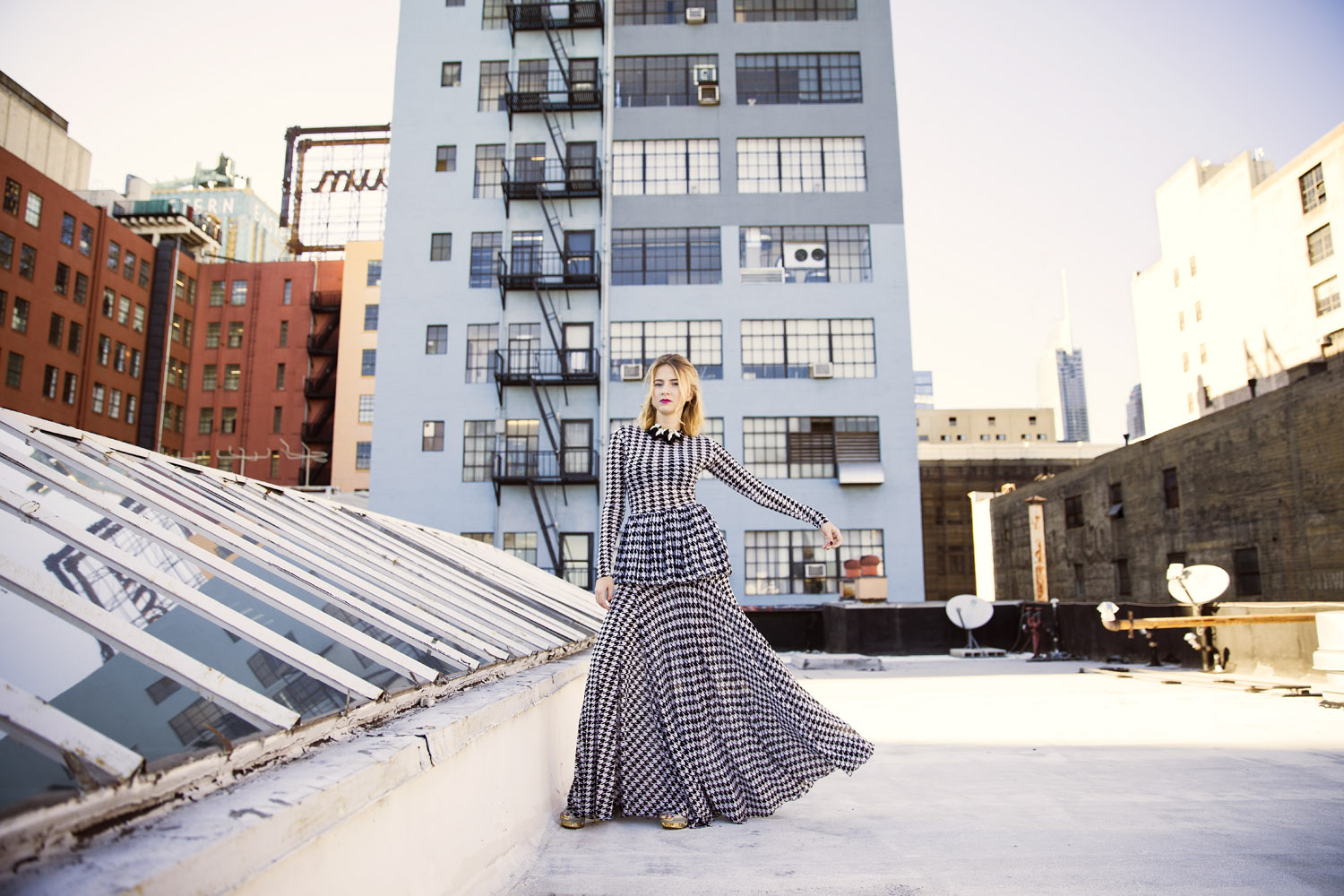Eliza Bennett

“I didn't know so many women in my life were survivors until I did this show. I mean, maybe if I hadn't done Sweet/Vicious I would never have known.” Unfortunately, Eliza Bennett is probably right. Originally thought of as a cross between Quentin Tarantino and Girls, Sweet/Vicious is an offbeat superhero story about two college students who primarily seek justice against men on their campus that got away with rape. For a series with such a heavy subject matter, it can easily also be billed as a comedy due to the quick wit of its two leads, or an action thriller as the vigilantes pack some major power moves. Despite this, the center of the story revolves around Jules, a peppy sorority student played by Bennett, as she struggles to come to terms with the aftermath of her rape at the hands of her best friend’s boyfriend. Rather than seeking counseling, she turns to violence as a means to cope.
“Shooting some of the more difficult scenes that we're shooting, I thought about people that I knew all the time, constantly,” Bennett continued. “These were women that are incredibly close to me.” Sweet/Vicious is, to our recollection, the first television series that deals with the after effects of rape and how it affects the victim and those around them. While many shows like to throw rape in as a plot device (see: repeat offender Game of Thrones), series creator Jennifer Kaytin Robinson wanted to shed light on a story that’s never told or even talked about–and show that victims are much more than the frail image perpetuated of them. “We wanted to represent these people in television that haven't been represented yet,” Bennett confirmed. “It was to give a voice to the voiceless and it was to tell a story about people that have been silenced for a very long time. And in some way, you know, we definitely don't say that violence solves violence but there is a level of therapy.”
Leading up to filming, Bennett dug into books like Missoula, which chronicles the experience of five victims at the football-loving school, and documentary The Hunting Ground, which, while controversial, focused on how administrations ignored rape accusations in order to uphold their financial interests. “Listening to these stories from girls, and boys as well, that had been raped by someone that [they] not only knew but that was their friend, or that they had trusted, or that they had grown up with, and what that looked like,” she explained, was difficult to watch. Each experience was different and contained varying levels of shame and guilt. “You feel like it's a level of responsibility that you didn't see it coming and I think that that changes the story,” she added. The victim is led to believe that their rape happened because they made mistakes. She was out late, or she shouldn’t have had too much to drink. She didn’t report it right away so she’s just having regret. The list goes on. “With our show, we definitely want to be telling people that that is not true and that it is not their fault, and the only reason that someone is raped is because there's a rapist. I think we're trying to break the stigma of how a survivor should be and the power of television is that we get to tell this story, Jules’ story, from start to finish. I hope by the end of it people can understand why Jules didn't tell Kennedy straight away and understand why Jules didn't tell anyone and also understand why she channeled what was happening to her into being a vigilante.”
Dress by Mario de la Torre. Shoes by Femmes Sans Peur.
The inability for Jules to connect to her best friend Kennedy, played by Aisha Dee, proved to be the most difficult scenes of all for Bennett to film. She found them emotionally draining and heartbreaking. “It caught me off guard,” she explained. “We couldn't get through a rehearsal without being in floods of tears. I think it's something about women not believing women that feels painful.” Thankfully, the support between the cast off camera came easily. As they neared the heavier elements of the season, they always made sure to plan something fun and light to give them balance. According to Bennett, they had a lot of cast barbecues and ping pong competitions. After filming the brunt of the game-changing episode seven, she and co-star Taylor Dearden, who portrays her vigilante sidekick with sardonic wit Ophelia, ran off to Santa Barbara for a long weekend to relax and unplug. No matter what, the cast and crew watched out for each other as they dealt with the complex emotions the series’ content demanded.
While Sweet/Vicious ultimately struggled for ratings, it quickly became a critical darling and social media favorite. Vanity Fair called it “our most politically urgent show” and The Hollywood Reporter argued it’s “the best show you’ve never heard of.” Despite being put up on MTV.com in a move to try and appeal to the laptop-streaming generation, it still had trouble finding its footing, as most youth have the habit of logging into their streaming service of choice and going from there. But those who did watch the show resonated with it deeply, either as someone who can relate to Jules’ story in some way or as an eye-opening experience to what the trauma can be like. Fans joined outside the Viacom building in Hollywood demanding a second season and others took to the internet to share their experiences. “If a survivor speaks to either Jen or Taylor or I on twitter, you see an entire wave of people throw support to this one person. It's been an amazing community to be a part of,” Bennett shared. “You can give people statistics as much as you want but I think a testimony of someone's story is more powerful.”
Top and skirt by Foxbait. Shoes by Femmes Sans Peur.
This power is why the show has hit the viewers it’s reached so strongly. “I’ve never done a job that had a cause other than being an entertaining television show, that had a story to tell that was actually going to be doing something important." It's clear that the series has had a profound effect on her. "You can be a real life Jules and Ophelia and not have to be a vigilante,” she noted. “You can have support groups for survivors. You can raise money for survivors. You can be a part of protests. You definitely don't have to be a survivor to be a part of this cause. In fact, it makes survivors feel less alone if they feel represented by other people.” Through her work with Sweet/Vicious, Bennett was introduced to the anti-sexual assault organization RAINN and has since become a big advocate for their cause. “If you are at a party and you see that someone is annihilated and a guy is dragging her to his room, I think you have a duty to speak up. I think it's difficult to speak up, and sometimes feels like you don't want to intrude on someone else's business, but I think that's better than regretting it if you find out what happens to them afterwards. Make sure that people are accounted for and call ubers for people that need them.”
Sweet/Vicious, so far, has only been able to tell its origin story. At the end of the season, it’s opened up to a larger world and a new chapter. They’ve set the groundwork and now have the opportunity to tell more women’s stories through their medium and continue to build a community of intertwined strength and healing. “What a wonderful world we would live in if we didn't have to warn women to be careful all the time,” she mused. “Sadly, we do and sadly we do need to take that duty seriously to take care of one another.” The best way to make sure that duty stays at the top of our priority list is to keep it in our discussions, to continue learning through others’ experiences and giving women, and men, the opportunities to speak up when they need to so they know that they are not alone. A show like Sweet/Vicious gives a strong channel for these types of discussions and its continuation will only help this very important subject continue to reach a wider audience.










